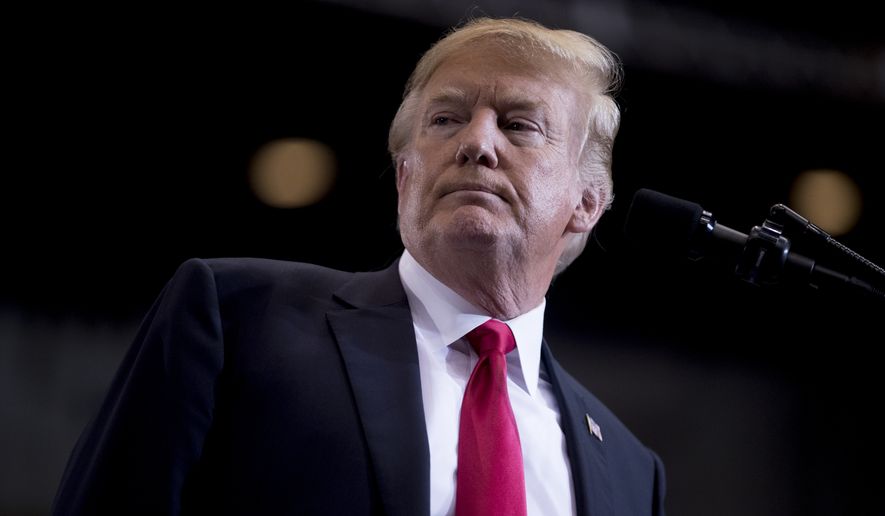President Trump signed a law Wednesday that gives terminally ill patients the right to try experimental medicines that lack full approval from the Food and Drug Administration.
The president championed the “Right to Try” legislation and scored a rare bipartisan win with the legislation in Congress, where he demanded Republicans and Democrats come together to pass it during his State of the Union speech this year.
Mr. Trump said that access to experimental treatment was a “fundamental freedom.”
“We’re going to be saving tremendous numbers of lives,” he said at a signing ceremony at the White House, where he was surrounded by lawmakers and several Americans who had been diagnosed with terminal illnesses.
“The current FDA approval process can take many many years. For countless patients, time is not what they have,” said Mr. Trump.
Frustrated by an FDA approval process that can drag on for 20 years, patients’ rights advocates long clamored for the law. It gives hope to some people battling terminal illnesses, offering them the chance to try experimental treatments as long as they accept the risks.
Sen. Ron Johnson, the bill’s author, said the signing ceremony was “a moment of deserved celebration” for those who fought to get the legislation passed.
“However, bureaucracies rarely cede their authority over our lives without a fight. So, we must — and we will — remain vigilant that these hard-won freedoms are implemented and preserved as intended,” said the Wisconsin Republican.
Mr. Trump acknowledged the hard work to get the bill to his desk.
“I never understood why it was hard. They’ve been trying to pass it for years,” Mr. Trump said at a signing ceremony at the White House. “We worked very hard.”
He predicted good outcomes for many willing to undergo experimental treatment.
“A lot of that tiring is going to be successful. I really believe it,” he said.
However, opponents warn that dying patients may not be prepared for the implications of trying experimental therapies, including possibly dying earlier or more painfully.
The FDA already has an “expanded-access” program for terminally ill patients that approves nearly all requests, so cutting the agency out of the process would only invite trouble, they said.
Rep. Frank Pallone, who opposed the legislation, said the FDA oversight of access to experimental treatments exists for a reason.
“It protects patients from potential snake oil salesmen or from experimental treatments that might do more harm than good,” said the New Jersey Democrat. “By removing FDA oversight, you are counting on physicians and manufacturers to serve as the gatekeeper and protector of patients. I simply don’t buy that that’s going to work.”
The bill took a circuitous path to Mr. Trump’s desk. The Senate passed the bill last year under unanimous consent, meaning no senator objected to the measure.
In March, House GOP leaders tried to pass an amended version of the Senate bill under a procedural process that requires two-thirds support. It fell short of that threshold, but the bill passed under normal procedures later on. Yet Senate Democrats indicated they would block the House bill if it came to their side of the Capitol.
House GOP leaders decided the path of least resistance would be to bring up the Senate version that already passed, so Mr. Trump can get something as soon as possible.
Under the bill, the FDA would be notified if a patient tries a new treatment, and it would collect data on poor outcomes.
The agency would no longer have a supervisory role over people who use the bill’s “alternative pathway” to obtaining the treatments through their doctors and drug companies.
The bill doesn’t force companies to provide the treatments to those who request them, however.
Dozens of patient-advocacy groups opposed the bill. They said a bigger problem, which the bill doesn’t tackle, is pharmaceutical companies denying requests for access to drugs outside of their normal clinical trials.
• Tom Howell Jr. can be reached at thowell@washingtontimes.com.
• S.A. Miller can be reached at smiller@washingtontimes.com.




Please read our comment policy before commenting.